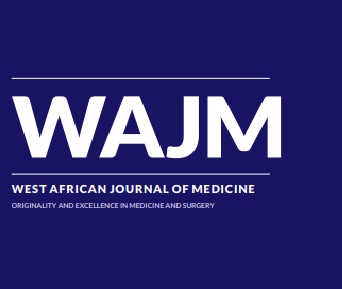ORIGINAL ARTICLES An Evaluation of the Knowledge and Utilization of the Essential Medicines List among Health Professionals in Six Tertiary Institutions in Nigeria
West Afr J Med . 2023 Jun 29;40(6):575-580.
Keywords:
Attitudes; Essential drugs; Essential medicines; Health care professionals; Knowledge; Nigeria; Practice (KAP); World Health Organization (WHO).Abstract
Abstract in English, FrenchBackground: The introduction and operationalization of the Essential Medicines (EM) concept remains a major achievement of the WHO. This study assessed the current knowledge, utilization, and perception of the Essential Medicines programme in Nigeria.
Methods: This was a cross-sectional study conducted across six tertiary health institutions in Southern Nigeria from January to July 2018. A total of 750 semi-structured questionnaires were administered to doctors, pharmacists, and nurses. The information sought included the demographic characteristics of respondents, knowledge of definition of the essential medicines concept, date of launch at the national level, current edition, current use, the advantages and disadvantages of the EM List (EML). The data were analyzed qualitatively and presented descriptively as means (SD) and percentage frequencies.
Results: A total of 748 respondents (487 doctors, 208 nurses, and 53 pharmacists) participated in the study. Healthcare professionals' (HCP) knowledge of the EM concept and list was poor (15%), as determined by their ability to define or describe the concept of the EML, with less than 3% of respondents aware of the current edition of the EML in use in Nigeria. Less than 20% of all respondents used the EML during their internship, with nurses using it the least and only 8% using it during their first year of practice. Over 70% of respondents could not identify notable advantages of the EML and only 14.6% agreed that the program had been successful in Nigeria.
Conclusion: The initial global momentum following the introduction of the EM program appears to have declined with the new generation of HCPs, likely due to lack of educational reinforcement. This negatively impacts the drug use scenario within our healthcare system.
Keywords: Attitudes; Essential drugs; Essential medicines; Health care professionals; Knowledge; Nigeria; Practice (KAP); World Health Organization (WHO).
S A Ayinbuomwan 1 2, A O Opadeyi 1 2, J O Ohaju-Obodo 3 4, P E Akhideno 5, S O Oghuvwu 6, P O Nwani 7, B O James 8, A O Isah 1 2


